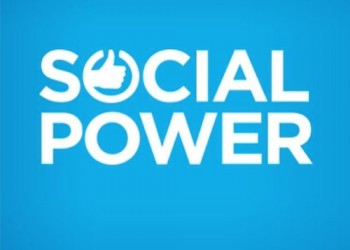What is influencer marketing? It’s among the most common questions you’ll find marketing and social media speakers being asked. Allow us to explain – and explain how you can use it more effectively to drive business growth for your organization.
It may help to consider that today’s marketing process looks less like a funnel and more like a circle. First you must become part of public conversations and initial brand consideration sets up-front, then drive positive online dialogue and continued loyalty to remain part of them on the back-end. But to insert yourself into the conversation at any point, you also need to wield influence: The ability to shape or even change public opinion, and prompt others to take action. That’s where influencers – celebrated thought leaders and subject matter experts to whom various communities and audiences turn for trusted insight and advice – can help (not to mention influencer marketing).
So what types of influencers are available for you to connect with? Naturally, market-leading industry experts and analysts, as well as popular media figures may spring to mind. But thought leaders, community leaders, educators, trusted voices in the field can all play this role.
In everyday practice, it’s important to realize that influencers can present themselves in a variety of combinations. Below are several common examples of influencers, some of whom you or your organization may have connected with already:Customers. Some customers blog, use social media, or are well-regarded thought leaders in their community. These can be everyday working professionals, and even families of children—all of whose voice can be tremendously important, as today’s marketing funnel more closely resembles a circle in shape. Sustaining positive word-of-mouth commentary, reputation and customer loyalty have been proven to be every bit as important as important to the process of promotions as being one of the first brands that others consider. Note that even if these individuals are not accredited experts, and even if size of their audience isn’t huge, they still might hold influence with a particular niche or demographic that you’re trying to reach.
Bloggers and Online Personalities. A blog doesn’t have to reach a massive audience to have an impact—it simply needs to reach the right audience. (The powerful “echo effect” comes into play here, because word can spread fast amongst a targeted group via retweets and “Share” buttons.) For example, a blog focusing on high-end Android smartphone headsets that yield the best sound quality may be passed up by the average Android user, for cost reasons. But a consumer who’s an audiophile, and serious about paying top-dollar for the best equipment money can buy may read this blog religiously, and pass over the innumerable sites that cover discount-priced alternatives.
Industry Leaders and Experts. Influential software developers, publishers, editors and other thought leaders aren’t always well-known outside of their particular niche, but may prove essential connections because their opinion carries a lot of weight, and people listen when they talk. A chip-maker who’s trying to get major software developers on-board for a new hardware platform or operating system probably isn’t going to rely on CBS to get its message out, essentially shotgunning it out to millions—the majority of whom may have zero interest in the subject. That time and energy may be much better spent zeroing in on an online software community where third-party developers congregate, and hitting 30,000 of the right people in high-profile fashion.
The job of a company in finding these experts is to both understand the types of influencers that they can potentially connect with, and how to best connect with, engage, and activate them. Influencer marketing is therefore a form of advertising in which communications professionals attempt to engage influencers to help communicate their message.
There are literally thousands of ways to find influencers, and finding the most effective strategic partners for your organization rarely requires you to broadcast your signal indiscriminately. Instead, by focusing and concentrating your efforts towards reaching a specific demographic, you’ll enjoy bigger pay-offs than going broader in most cases—after all, when you aim, you’re likelier to hit your target.














